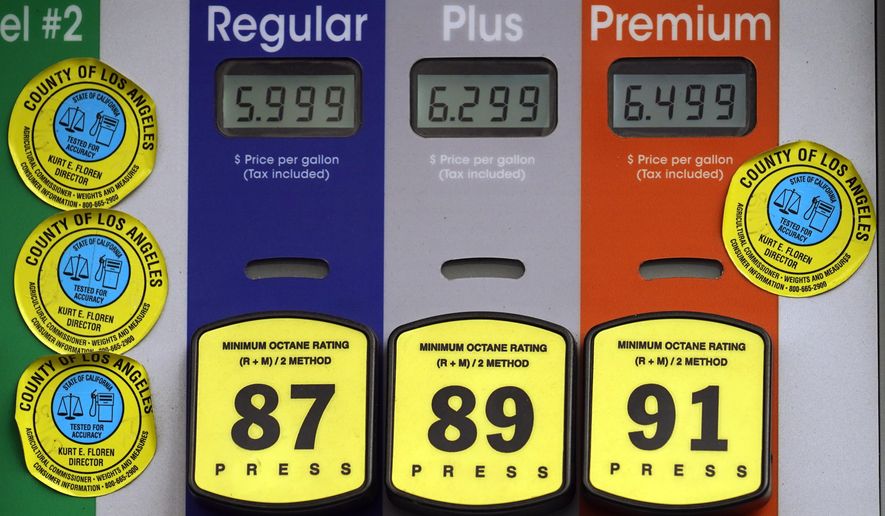The Congressional Democratic leadership stands firmly divided over whether President Biden should tap into the nation’s Strategic Petroleum Reserve to combat rising gasoline prices.
House Majority Leader Steny Hoyer, Maryland Democrat, argued Tuesday that such a move would be improper because the reserve was created to ensure the nation had fuel in an emergency, such as war or natural disaster, and should be used only for that purpose.
“I think the Strategic Petroleum Reserve is not for a rise in prices,” said Mr. Hoyer. “It’s for a collapse in supply at times of emergency, [such as] a conflagration in the Middle East which essentially shuts off supply.”
The position differs strongly from that taken by Senate Majority Leader Charles E. Schumer over the weekend. During a press conference in his home state, the New York Democrat urged the White House to take the threat of rising gasoline prices seriously.
“We’re here today because we need immediate relief at the gas pump, and the place to look is the Strategic Petroleum Reserve,” the senator said.
Mr. Schumer attributed the rise in prices at the pump to the supply chain crisis that has wracked much of the country.
“No industry is spared. But gasoline is the worst of all,” he said. “Let’s get the price of gas down right now. And this will do it.”
A president does not need Congressional approval, before or after the fact, to declare that supply interruptions have occurred and tap into the reserve.
The Strategic Petroleum Reserve, which runs upwards of 621 million barrels, is an emergency supply of oil housed by the Department of Energy. The reserve is kept to ensure the U.S. has adequate access to fuel in times of national crisis.
In recent weeks, both Republicans and Democrats have called on Mr. Biden to use the reserve to offset the rise in gasoline prices, despite some comments from administration officials to the effect that higher gasoline prices justify more spending on green energy.
“The president needs to immediately release some of the Strategic Petroleum Reserve,” said Rep. Adam Kinzinger, Illinois Republican. “People are being taxed with high gas prices, this is [the] real world … Not time to debate the merits of fossil fuels. We can focus long term on green energy while helping people now.”
To date, Mr. Biden has resisted the calls, opting instead to publicly pressure the Organization of the Petroleum Exporting Countries (OPEC) to increase energy production.
Gas prices have soared since Mr. Biden took office. According to consumer groups, the price of gasoline is more than a dollar-per-gallon higher than it was in November 2020.
Last week, the national average for a gallon of gasoline was priced at $3.41. The average price when Mr. Biden took office in January was $2.39 per gallon.
• Haris Alic can be reached at halic@washingtontimes.com.




Please read our comment policy before commenting.